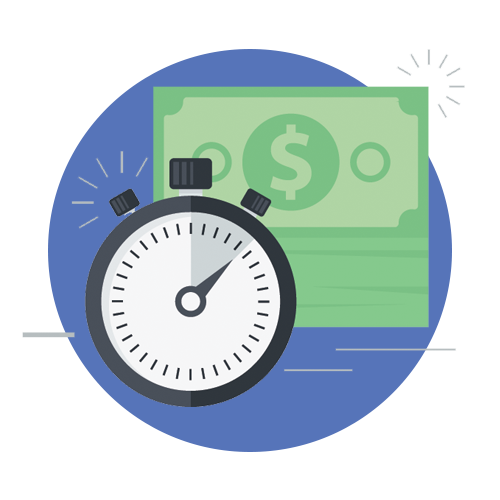Picture this: We worked with a company that sells water heaters around Australia. They spend around $7,000-$8,000 per month on SEO and generate $100,000 in revenue monthly from organic search alone. With a 50% profit margin, they're making $50,000 for every $8,000 invested. That's a 625% ROI that most marketers can only dream of.
But here's the kicker – while that same $8,000 monthly budget represents incredible value for this Australian water heater supplier, it would be completely unaffordable for a small local business just starting their SEO journey.
This distinction gets to the heart of our question: Is affordable SEO a myth, or simply a matter of perspective?
According to David Krauter, founder of Websites That Sell and veteran SEO expert with over 15 years in the industry, the answer isn't as straightforward as you might think. And understanding it could save your business from expensive mistakes that plague thousands of companies every year.
When SEO Actually Matters (And When It Doesn't)
Before diving into costs, Mr Krauter argues we need to understand when SEO is even necessary. The answer might surprise you.
"We worked with Procter and Gamble – they own Gillette, OralB and a whole heap of other famous household products," Mr Krauter explains. "For them, SEO wasn't really that important. When we took on that project, their site was actually a mess. There wasn't any technical SEO done right. Every SEO would say 'oh you got to fix this, this and this,' but the site still drove a ton of traffic. Why? Because it was a big brand and people weren't searching for things outside of the brand."
The lesson?
If you're already a household name, people will find you regardless of your SEO efforts. They'll simply Google your brand name directly.
But for most businesses, the story is different.
For example, take a local plumber who's built up their business to around $500,000 annually and wants to reach $1 million. "They've kind of tapped out that market and none of the brand marketing works anymore," Mr Krauter notes. "You've got to tap into a market that doesn't know about you but still needs your products or services. That's where SEO becomes crucial."
SEO works because it captures people actively searching for solutions. When someone's tap is leaking, they're not necessarily going to remember every plumber's name in their city. They'll search for "emergency plumber near me" or "how to fix leaking tap" – and that's your opportunity to be found.
The True Cost of "Cheap" SEO: Real Horror Stories
Here's where things get expensive – and it's not where you'd expect.
"You haven't experienced expensive SEO until you've tried cheap SEO," Mr Krauter warns, and he's got the battle scars to prove it.
One of the most damaging trends he's witnessed involves businesses falling for $99 monthly SEO packages. "Our hourly rate at Websites That Sell is $150 an hour. You wouldn't even be able to fulfill $99 package using our standard hourly rate! So the question is? Are you going to get any value from that? I don't think so."
But the real damage goes deeper than just wasted money. Mr Krauter shares horror stories of businesses that tried to cut corners, only to face devastating consequences:
The Private Blog Network Disaster: "Back in the day, we used to see a lot of companies using networks like SAPE – Russian PBN networks where you could get links really cheap. They work really well if done properly, but companies would go from zero to 1,000 links overnight. That raises alarm bells with Google. It goes into the record around your site, and Google starts to understand it's dodgy."
The AI Content Catastrophe: When ChatGPT first launched, agencies got trigger-happy. "Clients and other agencies thought this was the best thing ever and went to town – hundreds, if not thousands of pages added to sites. Then they wondered why they weren't seeing results or why their site tanked in the search engines."
The most chilling part?
Sometimes the damage is irreversible.
"In some instances, you can't actually recover – it's easier to start again," Mr Krauter explains.
All that brand equity, all those years building domain authority, gone.
Even when recovery is possible, the costs skyrocket. "We've had cases where our proposals might be five to ten times more expensive than they would have been if the client didn't hire a cheap agency that produced low quality work. Because we have to undo all this damage before we can start."
The Three Ways Cheap SEO Fails

The Anatomy of SEO Disasters
Mr Krauter has identified three consistent patterns in cheap SEO failures:
Pattern 1: The Big Agency Number Game. Large companies with impressive marketing often treat clients as numbers in a system. "They have no clue about SEO, yet they have a customer base who needs it. So they sell SEO without ever delivering any tangible outcomes. Why? Because they don't even know how SEO works," Mr Krauter explains.
Pattern 2: Misallocated Budgets. Some agencies excel at client acquisition but fail at service delivery. Their business model involves: "spending a lot of money on fancy advertising, attracting clients with cheap too-good-to-be-true package deals, spending minimal, if any, money on the actual client's campaign and calling it a profitable venture if the client doesn't leave after the first few months."
Pattern 3: Language Barriers. Outsourcing to overseas providers often creates problems. So, whether overseas or local, it's always best to work with an agency that shares your business values and prides itself on clear and transparent communication. Mr Krauter advises what can happen if a mutual understanding isn't established: "The wrong keywords get targeted, and you spend the little money required to pay for things that are counterproductive to building your online presence."
These patterns help explain why cheap SEO so often becomes expensive SEO in the long run.
Industry Pricing Standards
Understanding fair pricing helps you spot both overpriced services and dangerous bargains. The cost of SEO in Australia ranges from $1,000+GST to $10,000+GST and above per month, and execution of findings by a technical SEO expert is charged at $150+GST/hour.
As Mr Krauter notes, "If you expect a professional charging even $75/hour to work on your business for a couple of hours a month, it will set you back a few hundred dollars."
The math is simple: a $99/month package can't possibly include more than an hour of professional work. What are you actually getting for that price?
The EAT Test: How Google's Own Algorithm Should Guide Your Hiring
Here's a brilliant insight from Mr Krauter: Use Google's own ranking factors to evaluate SEO companies.
Google uses something called the E-E-A-T model for ranking websites: Experience, Expertise, Authority, and Trustworthiness. "That should be one of the ways for you to determine whether SEO is going to be affordable or expensive," Mr Krauter suggests. "How experienced is this company? How trustworthy are they? Have they got reviews? It's just basic business of choosing a company. Google's using those same rules to rank websites."
This framework helps you spot red flags before signing anything:
Experience: Have they weathered Google's algorithm updates? New companies might know current strategies but lack the battle-tested experience of surviving major changes in the SEO landscape.
Expertise: Can they explain their strategy in detail? Do they understand your local market? Mr Krauter notes issues with overseas providers: "Someone in the Philippines isn't going to understand that in Brisbane, Logan's actually a pretty big area that you could target on its own. We've seen overseas SEOs mix in suburbs from totally different regions because they don't have local market understanding."
Authority: What's their reputation in the industry? Are they active in creating educational content, speaking at conferences, or contributing to the SEO community?
Trustworthiness: Do they have verifiable case studies, client testimonials, and transparent reporting practices?
Red Flags in SEO Proposals
Before signing with any SEO company, Mr Krauter recommends requesting a detailed proposal. Here's how to evaluate it:
Warning Signs of Poor Proposals:
- Vague promises like "we'll improve your rankings"
- No specific keyword research or strategy outlined
- Missing content and link acquisition plans
- Guarantees of "#1 rankings" (no legitimate SEO can guarantee this)
- Cookie-cutter approaches that don't address your specific business
What Quality Proposals Include:
- Detailed audit of your current website
- Specific keyword opportunities identified
- Clear month-by-month deliverables
- Transparent reporting methods
- Realistic timelines for results
"The proposals we've come across where clients get ripped off are vague, filled with fluff and no clear content & link acquisition strategy," Mr Krauter explains. "Make sure you know exactly what you're getting for your money each month."
DIY SEO: Building Your Foundation Without Breaking the Bank

If professional SEO is currently out of reach, Mr Krauter recommends a strategic DIY approach focusing on what he calls "brand signals."
Step 1: Claim Your Digital Real Estate
"Claim a Facebook page, your Google Business Profile, have a YouTube page – you don't have to do videos, just claim the property with your brand on it. LinkedIn, all those ones that Google actually looks at," Mr Krauter advises.
Why does this matter?
"Google looks at these because, naturally, that's what a business would do. They probably have those signals before they have a website. Facebook is usually the first step, or an ad in Craigslist or Gumtree. If it's a real business, they should have these."
Step 2: Basic On-Page Optimisation
"Have your keyword in your title tag, in your H1 and on the homepage," Mr Krauter explains.
You can even pay a developer – it'll take them less than half an hour.
This is the bare minimum.
Will that get you ranking?
Maybe not, but it's a really good step to let Google know you want to be relevant for this.
Step 3: Content That Actually Adds Value
Here's where Mr Krauter's approach to AI differs from the horror stories: "What are the most frequent questions you answer on the phone? When you go out on a site, what do people ask? Start writing content around that."
The key is feeding your unique perspective into AI tools: "Rather than just saying 'answer this question,' you can prompt properly and say 'my clients have this question, here's my opinion, here's how I would answer that. Can you put that in a nice article for me?' That's totally different from just putting one keyword in and getting AI to generate it."
One-Time Optimisation Strategy
For businesses that can't commit to ongoing monthly SEO but want to make progress, Mr Krauter recommends a strategic one-time investment:
Instead of spreading a limited budget across months of minimal activity, invest in comprehensive website optimisation upfront. This includes:
- Complete technical SEO audit and fixes
- Keyword-optimised page titles and meta descriptions
- Proper header structure (H1, H2, H3 tags)
- Site speed optimisation
- Mobile responsiveness improvements
- Schema markup implementation
"Will you rank on the first page of Google by just optimising your site? Maybe? Who knows... but probably not!" Mr Krauter admits.
However, getting your website properly optimised for the keywords you're wanting to rank for puts you in the game.
It takes the handbrake off your site and makes it benefit from any online exposure that you do get.
When This Approach Works:
- You have a one-time budget of $2,000-$5,000
- You're planning other marketing activities (ads, networking, PR)
- You want to ensure your website converts visitors effectively
- You're building toward future SEO investment
This foundation ensures that when people do find your website (through any channel), it's optimised to convert them into customers.
Free Tools to Get Started
Mr Krauter recommends four essential free tools for DIY SEO:
- Google Keyword Planner: Shows you what people are actually searching for in your industry
- Google Analytics (GA4): Measures website performance and user behaviour
- Google Search Console: "We live in Search Console. If your SEO doesn't live in Search Console, get a different SEO." Shows ranking data and optimisation opportunities
- Ahrefs (Free Version): Technical analysis and keyword research when connected via Search Console
"Most of those are straight from Google, so you're going to the source," Mr Krauter notes, emphasising their reliability over expensive third-party alternatives.
When to Invest in Professional SEO

If you're just starting out or operating on a tight budget, Mr Krauter suggests investing in website optimisation first: "Let's get your website optimised and take care of the technical stuff. Make your website relevant rather than doing all the things at once."
But there's a progression: "Usually our clients start with ads, then they invest a little bit, what they can afford. Then they make a little bit, they can afford a little bit more. What used to be expensive is now actually affordable because of the ROI that's driving."
For established businesses with decent turnover, his advice is direct: "Usually when you're at that stage, you've got the budget required to do it well. Just go and invest in high-quality SEO."
The Scaling Success Story
One of Mr Krauter's most compelling case studies involves a skip bin company that started small and scaled systematically:
The Journey:
- Started with a $595/month local SEO package
- Achieved local market dominance within months
- Reinvested profits into larger-scale campaigns
- Expanded to major cities across Australia
- Result: Consistent $90,000 in weekly sales purely from SEO
"He invested in our bottom local package $595 per month, we ranked his website in his local area. The website started driving leads and became the dominant player in the local area," Mr Krauter recalls. "Then when he had the budget to scale up we did exactly the same thing on a large scale for him."
This illustrates a crucial point: you don't need to start with a massive budget. The key is starting with quality work that generates returns, then reinvesting those returns into expansion.
The Scaling Strategy:
- Begin with local optimisation in your primary market
- Dominate that market and establish a consistent lead flow
- Use increased revenue to expand to adjacent markets
- Scale systematically rather than trying to do everything at once
The Real Definition of Affordable SEO
"The most expensive SEO you'll experience is cheap SEO."
So is affordable SEO a myth?
What we have learned is this...
It really comes down to perspective.
True affordability in SEO is about finding an approach that delivers a sustainable ROI (not the cheapest option!).
Whether that's:
- For startups: Investing time in learning basics and building foundation elements
- For growing businesses: Gradual investment in professional optimisation as revenue allows
- For established companies: Full professional campaigns that generate measurable returns
The common thread?
Avoiding the false economy of cheap shortcuts that can destroy years of progress overnight.
Do it right the first time, because trying to undo damage that's been done can become very, very hard, and sometimes actually impossible.
In the end, affordable SEO does exist, but only when you understand what you're actually paying for and ensure it aligns with where your business is today and where you want it to go tomorrow.

